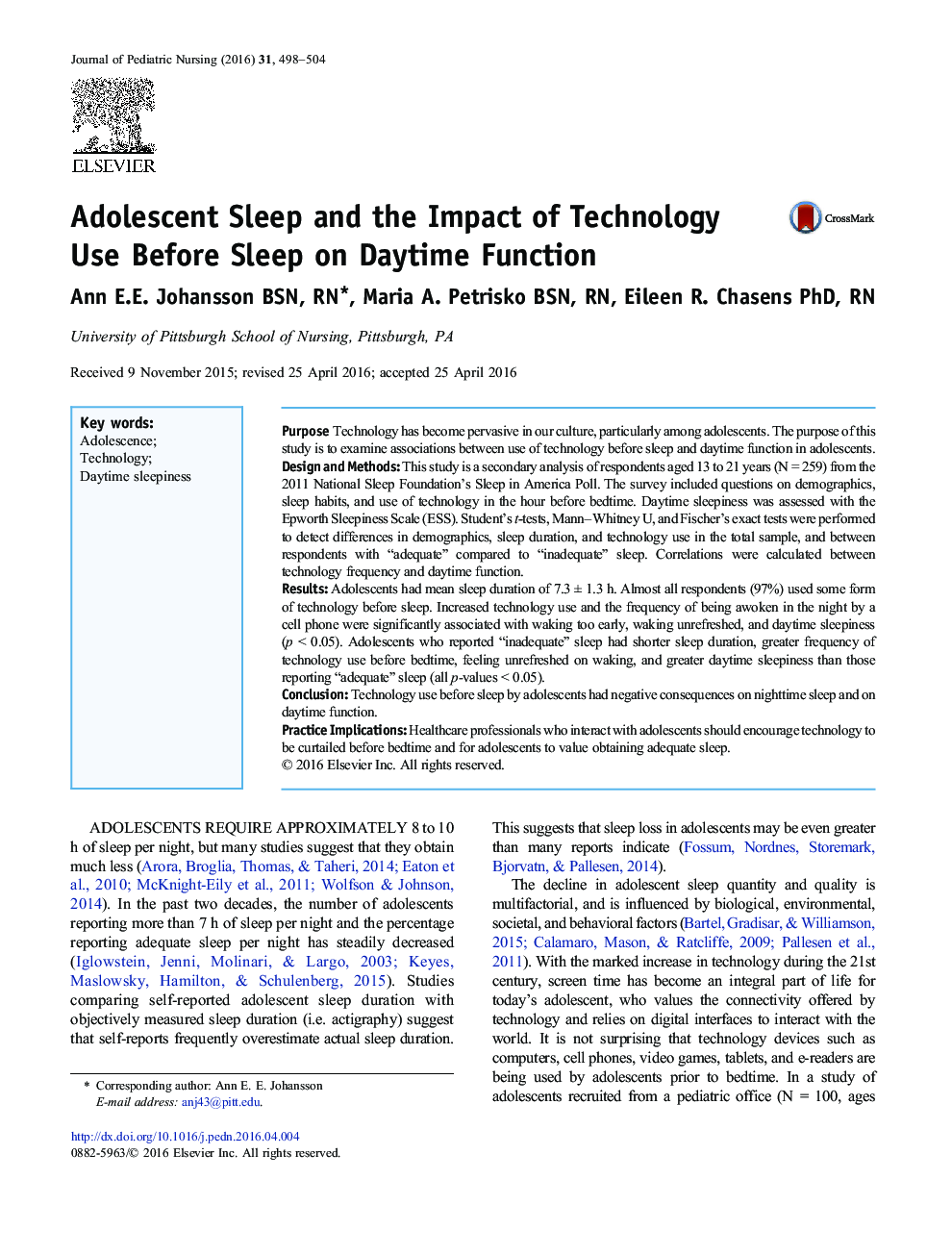| کد مقاله | کد نشریه | سال انتشار | مقاله انگلیسی | نسخه تمام متن |
|---|---|---|---|---|
| 2668289 | 1403740 | 2016 | 7 صفحه PDF | دانلود رایگان |
• Adolescents get less sleep than recommended by medical experts.
• Technology use before sleep is associated with daytime consequences.
• Nurses need to provide education and community advocacy regarding adolescent sleep.
PurposeTechnology has become pervasive in our culture, particularly among adolescents. The purpose of this study is to examine associations between use of technology before sleep and daytime function in adolescents.Design and MethodsThis study is a secondary analysis of respondents aged 13 to 21 years (N = 259) from the 2011 National Sleep Foundation's Sleep in America Poll. The survey included questions on demographics, sleep habits, and use of technology in the hour before bedtime. Daytime sleepiness was assessed with the Epworth Sleepiness Scale (ESS). Student's t-tests, Mann–Whitney U, and Fischer's exact tests were performed to detect differences in demographics, sleep duration, and technology use in the total sample, and between respondents with “adequate” compared to “inadequate” sleep. Correlations were calculated between technology frequency and daytime function.ResultsAdolescents had mean sleep duration of 7.3 ± 1.3 h. Almost all respondents (97%) used some form of technology before sleep. Increased technology use and the frequency of being awoken in the night by a cell phone were significantly associated with waking too early, waking unrefreshed, and daytime sleepiness (p < 0.05). Adolescents who reported “inadequate” sleep had shorter sleep duration, greater frequency of technology use before bedtime, feeling unrefreshed on waking, and greater daytime sleepiness than those reporting “adequate” sleep (all p-values < 0.05).ConclusionTechnology use before sleep by adolescents had negative consequences on nighttime sleep and on daytime function.Practice ImplicationsHealthcare professionals who interact with adolescents should encourage technology to be curtailed before bedtime and for adolescents to value obtaining adequate sleep.
Journal: Journal of Pediatric Nursing - Volume 31, Issue 5, September–October 2016, Pages 498–504
